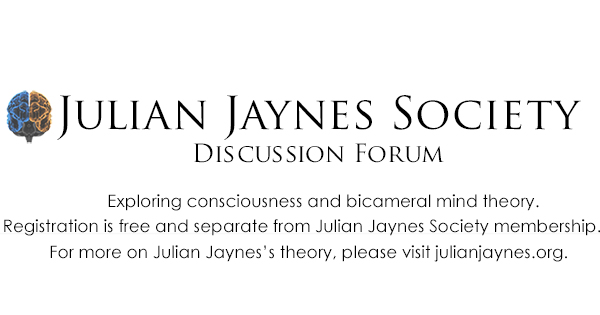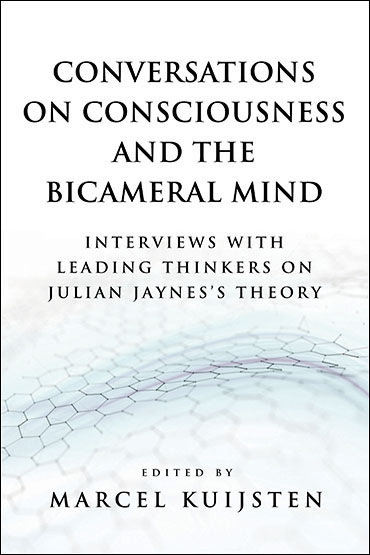Media reports and popular scientific journalism abound with articles about conscious animals and the possibility that advanced AI machines may be on the brink of achieving consciousness. For some even the universe itself is imbued with consciousness. Why all this questionable thinking? Such views are driven by two illogical lines of reasoning. First, mind is conflated—at least in the case of animals—with consciousness and the algorithmic computability of “thinking machines” is confused with subjective introspectable self-awareness. As for the “conscious cosmos,” mind is confused with some vague, mystical notion of “experience.” Animals, of course, possess minds, and arguably computers can “think” if we accept that we are relying on a metaphor borrowed from human psychology to delineate the capabilities of a device. And while an inspiring philosophical idealism appeals to certain physicists with a mystical bent, I am not aware of any experiments demonstrating how the universe cognizes or is conscious. In none of the aforementioned cases are we talking about consciousness if carefully defined. In the same way emotions, cognition, reasoning, etc., need to be separated out from our churning mental magma, consciousness needs to be isolated as an object of serious scientific inquiry.
A second mistaken line of reasoning is to start analysis with the abstraction of “mind” and then remain at this unhelpfully distilled level. In this view psyche is assumed to be composed of a mysterious substance, infusing bodies and entities the way spirits entered and animated people in the Middle Ages. Debates about psychology easily acquire an overly ethereal quality that lead to unhelpful generalizations, simplifications, and sweeping statements. The problem is that many unthinkingly hold an essentialist understanding of psyche. Some assume that once neuroscientific investigations become sophisticated enough, experimentation will reveal an inherent, immutable, and indivisible “psychic stuff” that can unlock the mysteries of mind, such as consciousness.
Rather than beginning from an essentialist definition and staying there, a more scientific approach to psyche should first postulate the concrete building blocks of psyche that are as much as possible describable and measurable facets. In actuality mind is a product of a neurological apparatus interacting with its environment; mind does not precede the particular components of a brain and its ecological matrix. To argue otherwise is a type of prescientific animism.
Adopting a clear definition of consciousness is indispensable since for many this concept is a vague, woolly notion. As in other grand theorizings—Einsteinian astrophysics, quantum mechanics, Darwinian evolution—counterintuitive ideas become more believable once in-the-trenches science moves forward with sophisticated experimentation, empirical data collection, and advanced mathematics. In the case of Jaynes’s hypotheses, this means a serious scholarly engagement with ancient texts, archaeological research, in-depth cultural studies, as well as neuroscientific research.
Overly-abstract Discussions about Psychology Lead Nowhere
Posts by anthropologist, mental health counselor, and author Brian J. McVeigh on Julian Jaynes's theory and related topics.
Return to “Brian J. McVeigh's Random Thoughts”
Jump to
- JJS Forum
- ↳ General Discussion
- ↳ News Items Related to Jaynes's Theory
- ↳ Book Discussion: The Origin of Consciousness and Julian Jaynes Society Publications
- ↳ Myths, Misconceptions, and Fact Checks About Julian Jaynes's Theory
- ↳ Brian J. McVeigh's Random Thoughts
- ↳ Julian Jaynes
- ↳ Conferences, Events, and Local Discussion Groups
- ↳ Lecture Discussion
- ↳ Interview and Q&A Discussion
- ↳ 1.0. Hypothesis One: Consciousness Based On Language
- ↳ 1.01. Hypothesis One: Consciousness Based On Language | Subtopic: Consciousness & Dreams
- ↳ 1.02. Hypothesis One: Consciousness Based On Language | Subtopic: Consciousness in Children
- ↳ 1.03. Hypothesis One: Consciousness Based On Language | Subtopic: Consciousness and AI
- ↳ 2.0. Hypothesis Two: The Bicameral Mind
- ↳ 2.1. Hypothesis Two: The Bicameral Mind | Subtopic: Auditory Hallucinations in Normal Adults
- ↳ 2.2. Hypothesis Two: The Bicameral Mind | Subtopic: Hallucinations & Imaginary Companions in Children
- ↳ 2.3. Hypothesis Two: The Bicameral Mind | Subtopic: Hypnosis, Possession & Altered States of Consciousness
- ↳ 2.4. Hypothesis Two: The Bicameral Mind | Subtopic: Religion & the Bicameral Mind
- ↳ 2.5. Hypothesis Two: The Bicameral Mind | Subtopic: Schizophrenia
- ↳ 2.6. Hypothesis Two: The Bicameral Mind | Subtopic: The Mentality of Pre-Literate & Pre-Modern Peoples
- ↳ 3.0. Hypothesis Three: Dating the Development of Consciousness
- ↳ 4.0. Hypothesis Four: Jaynes's Neurological Model for the Bicameral Mind
- ↳ The Bicameral Mind in Fiction, Film & Popular Culture
- ↳ Information for Students


